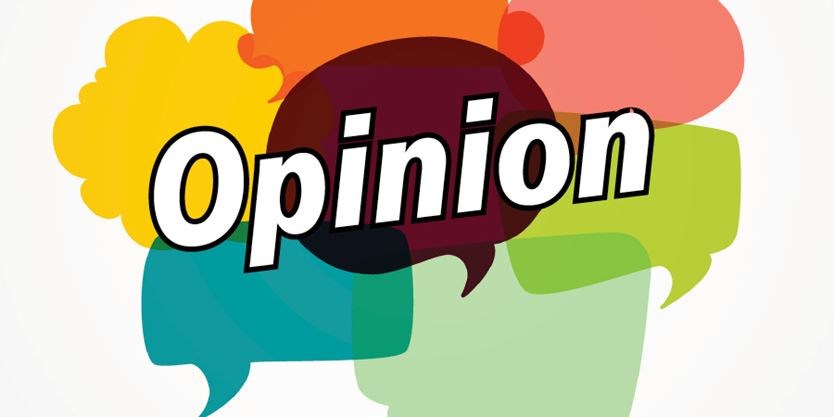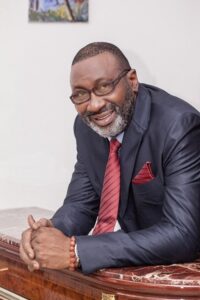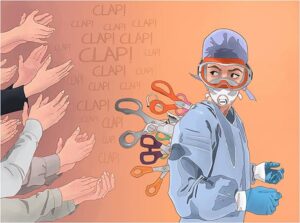Role of Science and technology in Development.
Chief Obafemi Awolowo 1967.
As we trudge on toward the July 29th “Our Heroes Past”, remembrance Day, A Teaser
“It is my considered opinion that Science and Scientific Method, if properly mastered and conscientiously applied, will provide the Master Key to all our problems—be they technical, political, economic, or commercial.”
An Address Delivered By Chief Obafemi Awolowo On The Occasion Of His Installation As The First Chancellor Of The University Of Ife At Ile-Ife On Monday 15 May 1967
” YOUR EXCELLENCIES, YOUR HIGHNESSES, MY LORDS, LADIES AND GENTLEMEN,
“When the Lord turned again the captivity of Zion, we were like them that dream.”
Today, my heart overflows with profound gratitude to God Who has made it possible for me to be in this gathering, and to play in it the historic role of the first Chancellor of this most promising University.
By ordinary human calculations, I was not due to regain my freedom until 11 May 1969 – that is, two calendar years minus four days from today, or a little less than three calendar years from the date of my release from prison on August 3, last year. But by the Grace of God, and the divine agency of Lt. Col. Yakubu Gowon, Head of the Federal Military Government, here stand I, in the midst of you, as the principal figure of this memorable occasion.
My thanks, therefore, go very deep to Lt. Col. Yakubu Gowon, the late Lt. Col. Adekunle Fajuyi, Col. Robert Adeyinka Adebayo, Military Governor of Western Nigeria, the Chairman and Members of the Provisional Council of the University of Ife, for the parts which they have severally played in making the early restoration of my personal liberty and my installation here this morning as the titular head of this reputable seat of learning, the accomplished facts of which all of you are undoubted witnesses. It is not generally known that, apart from labouring for my release up to the time of his death, and apart from gallantly and heroically laying down his life for his military superior and friend, Lt. Col. Adekunle Fajuyi became, in his death, an unpremeditated ransom for my redemption.
The University of Ife was founded in 1960; and although it was officially opened in 1961, it actually began its regular academic session in its Ibadan Campus in the year 1962. Like other Universities in this country and elsewhere, it is dedicated to the teaching of all the academic disciplines which have so far been and will in future be, instituted by the formidable and venerable world of learning.
From its birth seven years ago, the University of Ife has, in spite of some unhappy vicissitudes, had a steady and healthy growth. With an initial intake of 180 students, it now has an undergraduate student population of 923, composed of 795 male and 128 female students. There are, in addition, 22 post-graduate students, one of whom is female.
The University authorities expect that the present under-graduate student population will increase to 1,500 in the next academic year. It is my earnest hope, however, that this anticipated figure will have a phenomenal rise when, in the near future, education becomes free at the University level, as already agreed by the Leaders of Thought in Western Nigeria, regardless of their differing political beliefs.
Of the existing student population, 57 percent and 43 percent, respectively, are pursuing courses in non-science and science subjects. It is the aim of the University to reverse this ratio to 3 : 2 in favour of Science, within the next three to five years. I fully support this aim; and I am pledged to fostering it in any way I can.
It is my considered opinion that Science and Scientific Method, if properly mastered and conscientiously applied, will provide the Master Key to all our problems—be they technical, political, economic, or commercial. Even the non-science disciplines stand considerably to benefit from the employment of Scientific Method. Already, there are authoritative books on THE LOGIC OF THE HUMANITIES.
It has been said by many well-meaning and knowledgeable patriots that Nigeria is in a hurry. I will go further and say that, after she shall have survived her present paroxysm, Nigeria has need to make a leap over a quarter-of-a-century, if she is to satisfy the legitimate yearnings of her teeming peoples. After very careful consideration, I have no doubt in my mind that this feat of social rocketry is feasible, provided that Science is the booster and the Humanities the controllers. It is for this reason that I regard as enlightened and farsighted the University’s plan to reverse, within the next five years or so, the present approximate ratio of 2 : 3, in respect of students doing science and non-science subjects.
Though the fact is generally known, yet it can bear repetition, that the University moved to its present site only last January. And from all appearances, it has settled down so well, in that short period of time, that unwary visitors may be tempted to believe that the University has been here all its life.
For this and other achievements, all praise is due to the late Lt. Col. Adekunle Fajuyi, and Col. R. A. Adebayo, both of whom, on different occasions, squeezed water, so to say, from the Regional Government’s financial flint to make this campus the elegant and inspiring place that we now see. Equally, our sincere and profuse thanks go to those foreign Governments and Foundations which have been of assistance to us in the past.
Much work, and much expenditure remain to be done and incurred before we can claim to be fairly well established in this new home of ours. Even the Science disciplines are still in Ibadan and are only expected to move in during the coming academic session. In this connection we have implicit trust in the oft-repeated and firm assurances of the Military Governor, Col. Adebayo, that he regards the Ife University project as one of the top priorities in his Government’s scheme of things. In fact, in the current financial year, he has already demonstrated the earnest of his Government’s good faith, by making relatively substantial provisions for the University in the Budget.
We also look forward to our friends and well-wishers including overseas Governments and Foundations to give us as much assistance, in cash and kind, as it is ever within their power to bestow on this infant but fast-growing institution.
As for my fellow-Nigerians, I only wish to seize this opportunity to give them advance notice of my future plan for raising funds for the University. Before very long, I shall launch a “University of Ife Endowment Fund”; and I have no doubt that when the time comes they will respond generously to my appeal.
It is my ambition that the University of Ife – and indeed every other University in Nigeria for that matter – should be reasonably independent financially. It is incompatible with and subversive of the academic independence of a University for its Council and Vice-Chancellor, now and again, to go cap-in-hand to beg for funds from the Government, especially when such Government is controlled by a political party.
Whether we are conscious of or acknowledge it or not, the fact remains stubborn and indestructible that poverty, disease, social unrest and instability, and all kinds of international conflict, have their origins in the minds of men. Unless we tackle and remove, or at the very least minimize, these evils at their source, all our efforts in Nigeria to bring about happier circumstances for our peoples, and all the endeavours of mankind to evolve a better world, would be completely in vain. It is only when the minds of men have been properly and rigorously cultivated and garnished, that they can be safely entrusted with public affairs with a certainty and assuredness that they will make the best of their unique opportunity and assignment.
For this reason, I do fervently beseech both tutors and students alike in all our Universities to take their individual assignments most seriously. It is from them—from the university teachers to the university students, and from the latter to all the lower institutions of learning—that the eternal light of knowledge, and hence of intellectual and spiritual freedom, will beam, with powerful and inextinguishable radiance, to the lowest place of learning—even the nursery school.
The responsibility which thus devolves upon them is a grave one. It obliges them to intellectual honesty and detachment; so that the light which they shed may be brilliant, all- pervasive in its illumination, and unerringly guide men’s feet on the path of truth.
The cardinal aim of every academic discipline is to develop the power to think – clearly, correctly, and scientifically.
According to Haddock –
“The power to think, consecutively and deeply and clearly, is an avowed and deadly enemy to mistakes and blunders, superstitions, unscientific theories, irrational beliefs, unbridled enthusiasm, fanaticism.”
It will be seen, therefore, that the power to think clearly, correctly, and scientifically, is the greatest of all the powers that a man can possess.
If they are to discharge, creditably, the responsibility laid upon them, by the very nature of their calling, the University teachers must develop this power in themselves, in full measure, and sedulously help the students in their charge to cultivate it.
For exactly SIXTEEN months now, we have been making a strenuous and earnest search for peace, and a new Constitution. So far, the results which have attended our efforts have not been as we would wish them to be.
On this auspicious and felicitous occasion, and in the presence of this august and mixed congregation, I will endeavour to make only such remarks on the present situation in the country as appear to me to be non-critical and non-controversial.
There is an urgent and crying need to recognize certain factors which, in my view, have not hitherto been given the due recognition, emphasis, and weight that they deserve. I consider six of such factors to be very important, and I enumerate them.
ONE: Because of the nature of its political evolution since 1900, Nigeria had only had, all told, a lease of two years, for discovering and forging new cohesive materials, in place of the British ones, to keep it going as a united and harmonious entity.
Neither the discovering, nor the forging had been well under way before the prolonged crisis, which now threatens to engulf us, began in 1962. To be sure, since 1962, the fifty-one odd national groups in Nigeria have been moving farther and farther apart from one another, not closer and closer together. Indeed, as a result of the supervening and aggravating events of the past sixteen months, mutual suspicion and hostility have been deepening and ossifying with alarming speed.
In this connection, it must be borne in mind that the basis for any union among any communities, especially amongst diverse national groups such as we have in Nigeria, is the utmost mutual trust and understanding. The greater the trust and understanding, the stronger and more harmonious the union. The converse, of course, is also true.
TWO: Because of its youth as an independent sovereign State—Nigeria was only a little over five years of age when the coup of January 1966 took place; because of its youth, and because of the strains and stresses inherent in it as a multi-national State, Nigeria cannot afford an unduly protracted political and economic illness. The pressing danger involved in the present illness of our country is that it might kill more by its sheer protraction than by its severity.
THREE: Our military Administration must be recognized for what it was originally intended and proclaimed to be: an essentially corrective regime, and not a reconstructing Administration with ready and lasting answers to all our political and economic ills.
In my view, the main task of the military regime is to perform a quick and successful surgical operation for the purpose of removing, from our body politic, a malignant and debilitating morbid growth. It was never expected, and it would be too much of a risk for it to attempt to undertake the massive and never-ending task of rebuilding or reconstructing our body politic. It would be too much of a risk, because the Army would then be embarking on a venture for which it is not by tradition and training equipped, and which by its very nature is an ever-recurring phenomenon in any healthy progressive State.
FOUR: As there are good soldiers, so there are good politicians. Not all soldiers are saints, and not all politicians are devils or social lepers.
I have no doubt in my mind that if the corrective measures, which our Military leaders have in mind, are prosecuted with fearlessness, impartiality, and despatch, a new breed of politicians would emerge which would make the welfare of the people the sole object of their public career and pursuit.
FIVE: One of the stark and naked facts which stare us in the face is that, during the past five years, we have inflicted deep and grievous wounds oh one another; so much so that emotions, bitterness and deep-seated suspicions, far more than reason, charity, and trustfulness, now rule our hearts.
It is my candid and honest opinion that what we need very badly, in the present circumstances, is a palliative that will tide us over the present critical stage. Thereafter a curative must be sought and applied. I must warn, however, that an inflexible insistence on a curative, when there is so much sharp disagreement among all the doctors in attendance, may prove fatal to the patient.
SIX: All the great religions and ideologies of the world teach one and only one supreme and imperishable lesson, namely: that LOVE is the touchstone of all human activities. Any human activity that does not stand the test of LOVE is evil. As a practical guide to the practice of LOVE Jesus Christ gave us the Golden Rule in the following words:
“Always treat others as you would like them to treat you; that is the Law and the prophets.”
In closing, I wholeheartedly thank all of you—distinguished men and women in practically all walks of life, from far and near in and outside Nigeria—for responding to the invitation of the Provisional Council by gracing this occasion with your presence. Apart from the colourfulness and impressiveness of this ceremony which I hope we have all enjoyed, a visit to Ile-Ife must be a rewarding adventure to anyone- no matter from what part of the world he hails.”
It is not generally known that Ife is more than the cradle of the Yoruba people. It is from here in Ile-Ife, so our worthy legend goes, that the solid earth first arose from the midst of the all-pervading ocean, and was then spread, by one of our gods, to all the other parts of the world, to form the six continents of Africa, Asia, Australasia, Europe, North America and South America.





